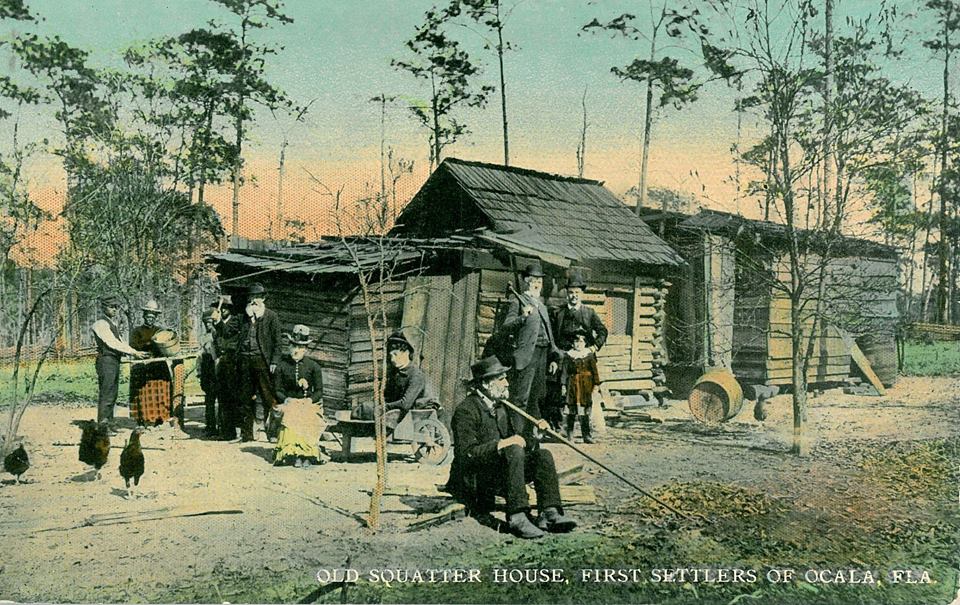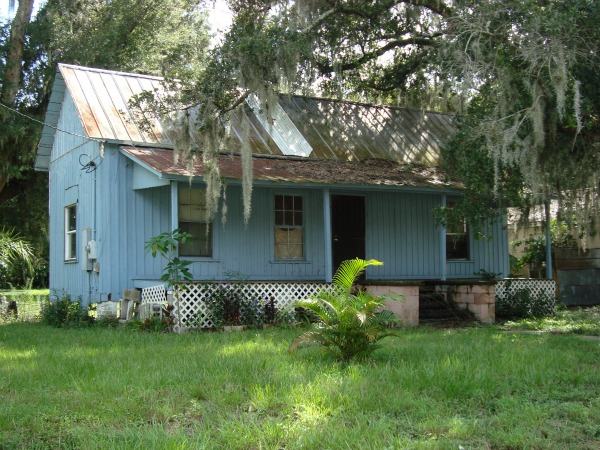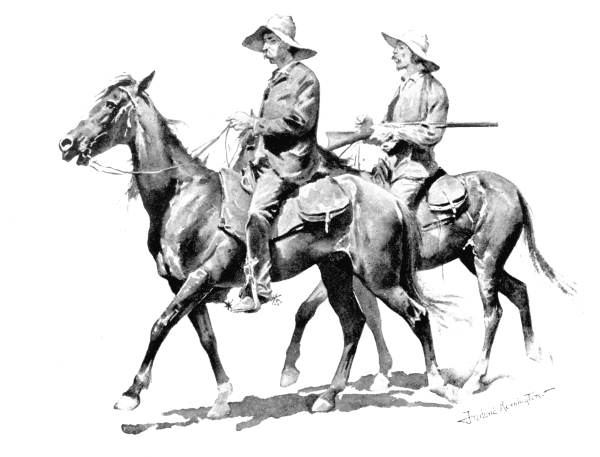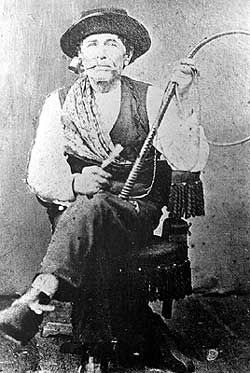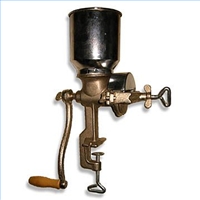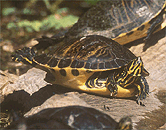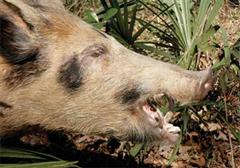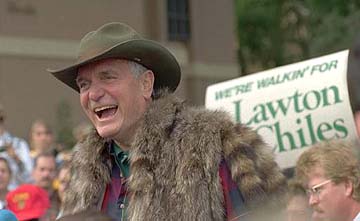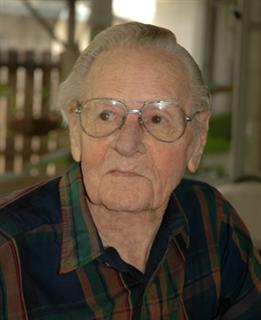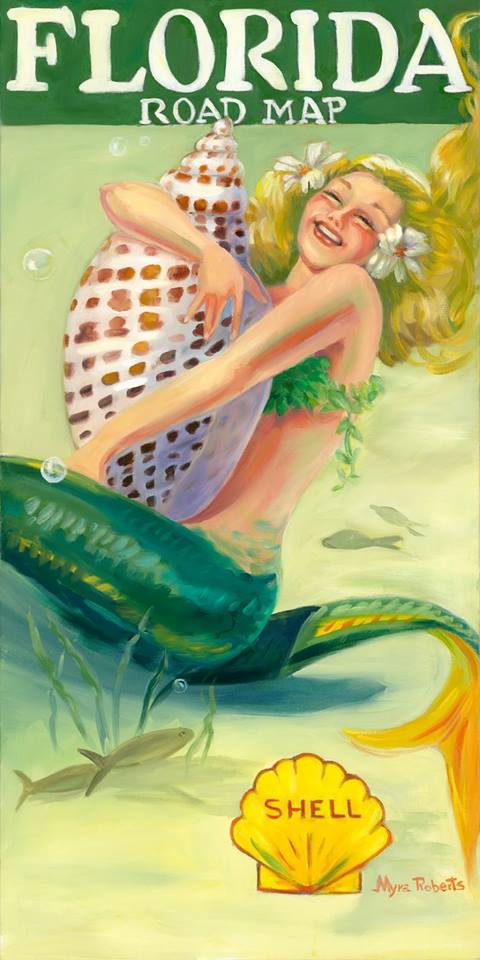- Home
- Florida Crackers
WHAT IS A FLORIDA CRACKER?
By Mike Miller Updated June 27, 2025
Be careful who you call a Florida Cracker. Some folks like to be called a Cracker; others hate it.
It all depends on who is doing the calling and who is doing the hearing.
For example, if a black man calls a white man "Cracker", it is not usually considered a compliment. It is a word for "bigot", and is very derogatory in that sense.
If a Yankee calls a country boy from North Florida a cracker, it might not be well received.
If that same Yankee calls a cowboy from Kissimmee or Arcadia a cracker, it might be okay.
The term "Florida cracker" defies easy definition. Having said that, I'll stick my neck out and give you mine.
INDEX TO THIS ARTICLE
This index will save you time if you are in a hurry because this is a very long article. It's more fun to leisurely scroll down the page, but you can also click on a link below to take you directly to your item of interest.
THE DEFINITION OF A FLORIDA CRACKER
He or she is from a family that was here long before the huge population explosions in Florida after World War Two. He or she is almost always Caucasian.
They and their ancestors lived in Florida and prospered before the days of cars, highways, mosquito control, air conditioning, medicare, social security and government welfare.
Quite often they are defined as second, third, fourth, fifth generation Floridians, or even more. I know one man who is 7 generations removed from Captain Francis Hendry, a pioneer cattleman and the founder of LaBelle, Florida.
One of the first Florida Crackers known to history was Jacob Summerlin. Many historians believe he was the first child born in Florida shortly after the state changed hands from Spain to the U.S.A.
He was born in 1820 and died in 1893. During his lifetime he became known by two titles: King of the Crackers, and King of the Florida Cow Hunters.
He was the also the pioneer behind many Florida settlements in Central and West Florida. He had the clout to get Orlando named the seat of Orange County and Bartow for Polk County.
Summerlin was one of the richest men in Florida before he turned 40, and owned large acreage across the state stretching from Fort Myers to Fort Meade.
You see his name today on streets in various Florida cities including Orlando and Fort Myers. Many of his descendants are still living in Florida.
A Florida cracker usually has a rural upbringing, either on a farm or in a small town with plenty of woods and water for hunting and fishing and land for planting.
That's because a Florida cracker is often self sufficient.
When modern civilization collapses, the Florida cracker will be hunting, fishing, trapping and growing his own food.
I'm afraid many of the rest of us will be standing in line at the government owned grocery store with our ration stamps.
The Florida cracker usually has a southern heritage, and his ancestors sympathized with the Confederacy during the Civil War.
You might even find a Confederate flag license tag on the front of his pickup truck.
The first crackers came to Florida before the Revolutionary War when Spain traded Florida to Great Britain.
After the new United States of America won the war, the Spanish got Florida back again from the British. It went back to the U.S. again in 1819 and became a U.S. territory in 1821.
Return to Index at Top of Page
THE ORIGIN OF THE TERM "FLORIDA CRACKER"
There are several versions. Here are four, but there are probably more. Somebody is probably doing a PhD dissertation on the subject even as I write this.
SPOILER ALERT!!! MOST FLORIDA CRACKERS CHOOSE NO. 3
1. One guess goes way back to England in the 1500's. The Elizabethan era English used the word "cracker" to refer to braggarts. For example, from Shakespeare's "King John" in 1565: "What cracker is this ... that deafes our ears / With this abundance of superfluous breath?"
In other words, the great Bard is describing a blowhard. Starting about 1730 in the years before the Revolutionary War, there was a huge influx of Scots-Irish settlers from Northern Ireland to the colonies.
Many of these settlers and their descendants ended up living rural lives in the southern colonies. The English called these newcomers "crackers", and there was no love lost between the two groups.
As a letter to Lord Dartmouth in the 1760s explained, " I should explain to your Lordship what is meant by Crackers, a name they have got from being great boasters: they are a lawless bunch of rascals on the frontiers of Virginia, Maryland, the Carolinas, and Georgia, who often change their places of abode."
The "cracker" term was soon associated with the descendants of these early settlers, especially the cowboys and farmers of Georgia and Florida.
2. Another version of the origin of "cracker" comes from the Spanish term "cuaquero", which means "Quaker". The early Scots-Irish settlers were mostly Presbyterian, Baptist and Methodist.
The Spanish used to call all Protestants "Quakers", and it was not an endearing term to the Catholic Spanish. When Florida came back into the U.S. in 1819, there were twice as many Spanish Floridians as Anglos, so it's possible the nickname came from the Spanish.
Majority rules, you know. Just ask the victims of ethnic jokes.
3. Another possibility is the sound made by the crack of the bull whips
that the early Georgia and Florida settlers used to control their
cattle and drive their wagons. This is still the favorite theory of
Florida crackers in the cattle counties of central and southwest
Florida. They're still cracking the whip even in modern times.
4. Some folks believe the term came from "cracking corn", not like "Jimmy cracked corn and I don't care" (which means to drink corn liquor), but as in grinding corn like the early Georgia and Florida settlers did to make corn flour for corn pones, corn bread, hush puppies and grits.
Return to Index at Top of Page
FLORIDA CRACKER LANGUAGE AND TERMS
Florida crackers have their own language, and I've learned a few of their key words in my more than half century in Florida.
One day after a super heavy rain in Orlando, my Florida cracker friend Howard described it as a "lighter knot floater". I needed a translation as I had only been in Florida a couple of years back then.
That's when I learned that a lighter knot is a fat pine knot used like kindling to start fires. A fat pine knot is very heavy, and it takes a lot of water to make it float.
If you have been wanting to learn a second language, you could do worse than to study the Florida Cracker language.
Other cool words that are still being used by Florida Crackers include:
- Chitlins: Hog innards, cleaned and cooked.
- Cooter: A turtle still served by the Yearling Restaurant in Cross Creek and celebrated by the town of Inverness in an annual festival.
- Corn Pone: A cake made from cornmeal batter using milk instead of water and deep fried.
- Cracker Horse: A small horse descended from the herds that
the Spaniards brought over in the early 1500's. They evolved into
surefooted herding animals used by the Florida cowhunters.
-
Croker Sack: A burlap bag.
- Glove Box: it's what northerners call a glove compartment in your car.
- Greens: the leafy part of turnips or collards that are good to eat.
- Grits: This is a southern staple made from dry coarse ground corn. Never served as a cereal, and not hominy grits Yankees eat. The Civil War would have ended much sooner if the Confederate Army had run out of grits.
- Herkin: This is what many of my cracker friends called a hurricane. Sometimes hurra-kin. Accent on first syllable.
- Hominy: Whole grains of white corn soaked in lye and boiled.
- Perloo: A one dish meal of meat and rice cooked together, like shrimp perloo. Yankees call it pilau. Marjorie Kinnan Rawlings has her favorite perloo recipe in her "Cross Creek Cookbook".
- Fat Back: Fatty meat from a hog's back. Cut up in small
pieces to flavor beans and greens. Also used to make lard. Also can be
roasted crispy and eaten like popcorn.
- Pineywoods Rooter: A feral hog, good to eat. Crackers like to trap them, pen them and fatten them up with corn before killing them for food.
- Pull: To take a drink of liquor from a bottle or jug. As in "take a pull of this here shine".
- Scrub Chicken: Gopher tortoises. Crackers loved to eat them; now it is illegal to kill them. Most crackers call them simply "gophers". This confuses a northerner new to the state.
- Swamp Cabbage: The heart of Sabal palm, cut into chunks and boiled. A cracker delicacy.
- Varmit: Any small animal like a rat, rabbit, or other varmint or vermin.
- Yankee: Any person from any state that was not one of the Confederate States of America.
Some folks in recent Florida history that might be considered Florida crackers were former Florida Governors Lawton Chiles, Leroy Collins, Fuller Warren, and Doyle Carlton.
They would be considered "Cracker Aristocracy" because of their education and positions.
Congressman Bob Sikes from the panhandle was the quintessential cracker politician. Although born in south Georgia, he spent most of his life in Florida.
Sikes referred to himself as the "He Coon" when talking about how he protected his brood of constituents.
Lawton Chiles used the "He Coon" reference in his final debate with Jeb Bush in the Florida Governor's race in 1994.
Chiles was behind in the polls and said to Bush during the debate:
"The old he-coon walks just before the light of day."
I saw the debate, and Jeb Bush looked puzzled at Chiles's he-coon remark. Most viewers were also puzzled. Chiles meant that even though he was behind in the polls, he'd make a comeback and win the election.
And so he did.
To hear some Florida Cracker language, check out this old video of Governor Charley Johns, a pork chopper, debating aspiring gubernatorial candidate Leroy Collins.
Another example of "Crackerese" is this video of a Carabelle, Florida fisherman named William Massey showing you how to clean a mullet without damaging the roe, also known as "cracker caviar".
Fuller Warren was Florida Governor from 1949 to 1953 when the state was still very Southern. Here he is being interviewed way back when in a television interview. He has a charming Southern drawl.
The favorite theory of how Florida Crackers came to be named is the story of cowhunters and their cattle whips. Here is a great video telling you what that's all about.
Return to Index at Top of Page
THE STORY OF FLORIDA'S PORK CHOP GANG
When I first moved to Florida in 1960, I don't think there was a single Republican in any elected position.
Almost all office holders and politicians were Democrats and Florida Crackers in those days.
The state was run by the "Pork Chop Gang", a powerful group of about 20 north Florida and panhandle cracker politicians who controlled the Florida legislature.
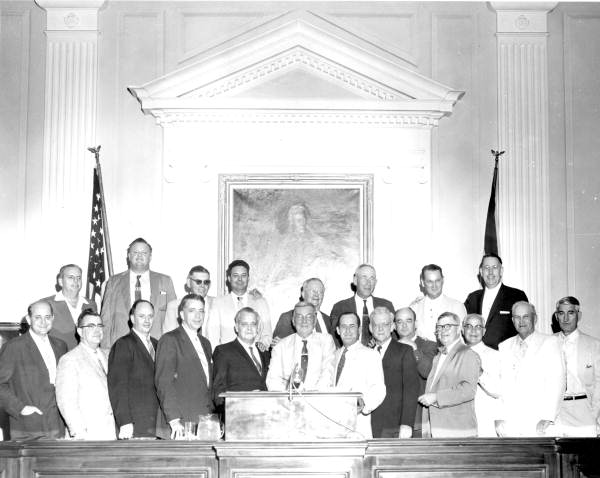 Florida Pork Chop Gang in 1956 - State Archives of Florida
Florida Pork Chop Gang in 1956 - State Archives of FloridaMembers of the gang in 1956 are shown in the photo above:
Back row (L-R): James E. "Nick" Connor, Brooksville; L.K. Edwards Jr., Irvine; Irlo O. Bronson Sr., Kissimmee; W.E. Bishop, Lake City; H.B. Douglas, Bonifay; William A. Shands, Gainesville; W. Randolph Hodges, Cedar Key; Charley E. Johns, Starke.
Front row: John S. Rawls, Marianna; Philip D. Beall Jr., Pensacola; Harry O. Stratton, Callahan; F. Wilson Carraway, Tallahassee; W. Turner Davis, Madison; Scott Dilworth Clarke, Monticello; Dewey M. Johnson, Quincy; J. Edwin Baker, Umatilla; Edwin G. Fraser, Macclenny; Basil Charles "Bill" Pearce, East Palatka; Woodrow M. Melvin, Milton; J. Braham Black, Jasper; J.C. Getzen Jr., Bushnell.
The Pork Chop Gang controlled the state because the legislative district boundaries had not yet been redrawn to reflect the huge numbers of people who had moved into central and south Florida.
They began to lose their power in 1968 when a new Florida Constitution ended the apportionment that favored the small counties.
Return to Index at Top of Page
SOME FLORIDA CRACKER CULTURE
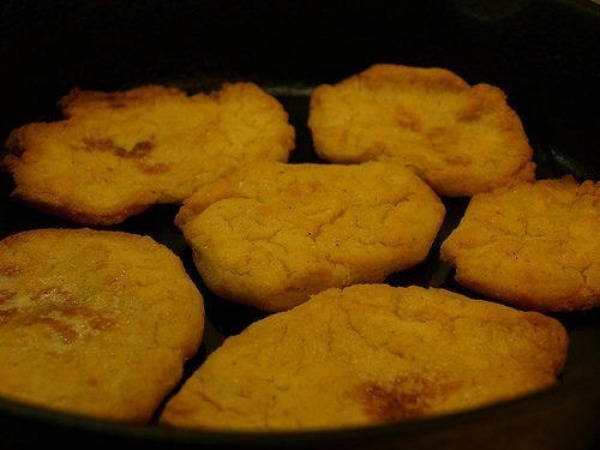
The Florida Crackers knew how to live off the land, and their recipes were simple yet delicious. Here are some recipes you can try yourself.
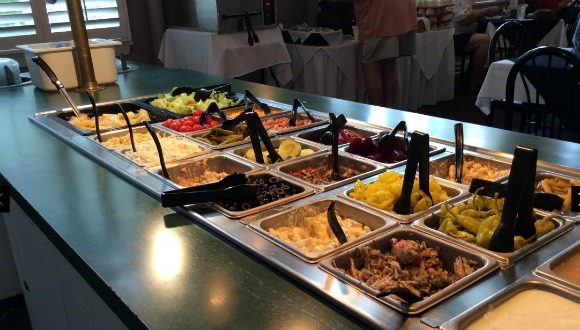
FLORIDA CRACKER RESTAURANTS
Florida Crackers love Southern cooking, and are always looking for a good restaurant that has great fried chicken, fried okra, greens and other typical Southern dishes.
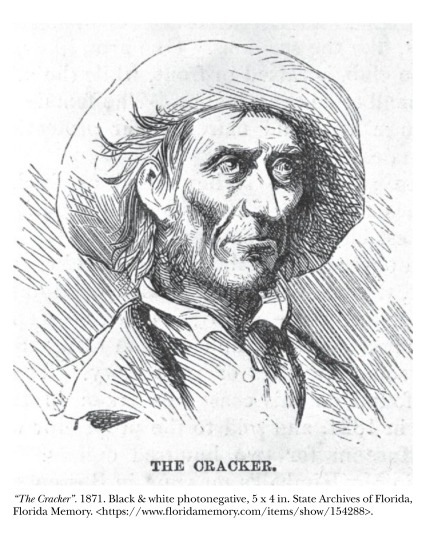
FLORIDA CRACKER HERITAGE & GENEALOGY is a page on our website for visitors to share their family histories. Many are Florida Crackers who have ancestors who came to the state in the 1800s. Some came in the early 1900s. These are the family histories submitted by our site visitors.

FLORIDA PIONEER CERTIFICATE FILES
The Florida State Genealogical Society's Florida Pioneer Descendants Certification Program honors descendants of Florida pioneers who settled in the Territory of Florida prior to Florida achieving statehood on March 3, 1845.

FLORIDA CRACKER TRAIL is a route across the range land of the state from Bradenton to Fort Pierce. It is a 120 mile long route that makes a great road trip by car. You can also ride a horse on an annual trail ride.
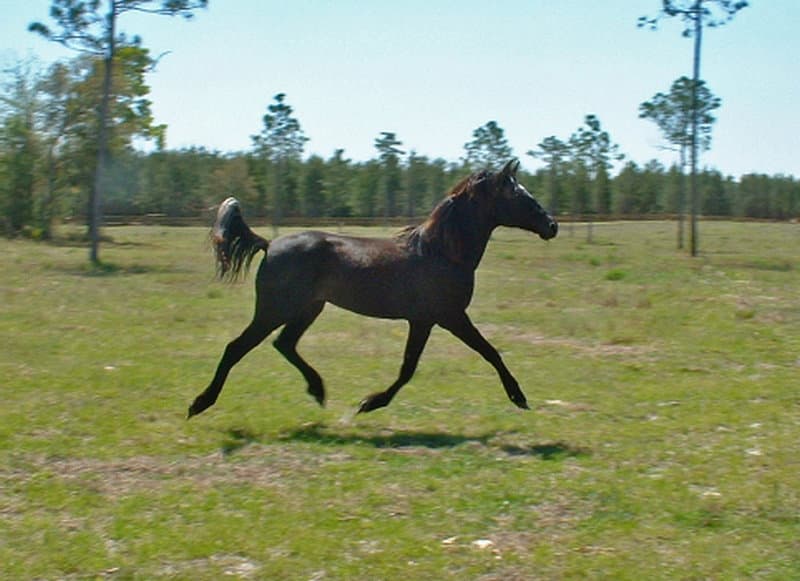
FLORIDA CRACKER HORSE The first ones were brought into the state the Spanish explorer, Ponce de Leon. They became an important asset to Florida's cattle industry, and are still being used to this day. They are a special breed.
Return to Index at Top of Page
SOME FLORIDA CRACKER BOOKS AND STORIES
Patrick Smith wrote a best seller that tells the story of the fictional Florida Cracker MacIvey family. The story covers the period from 1858 to 1968. The book is a classic that has been loved and revered by thousands of fans. His books were nominated seven times for the Pulitzer Prize and five times for the Nobel Prize for Literature. He is the the Florida Artists Hall of Fame.
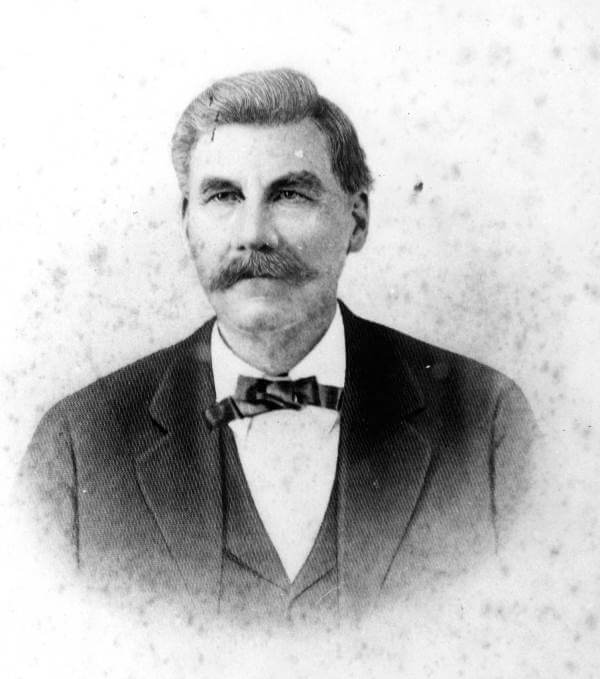
ZIBA KING, FLORIDA CATTLE BARON
When Ziba King died in 1901 he reportedly owned 50,000 head of cattle worth $500,000. This represented 10 percent of all the cattle in Florida. He was known as a cattle baron, and his life story is similar to the fictional family created by the late Patrick Smith in his Florida classic "A Land Remembered".
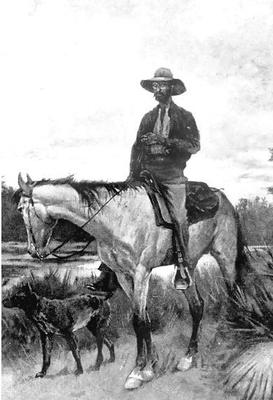
BONE MIZELL, LEGENDARY COWHUNTER
Florida history has its fair share of characters whose reputations seem to endure for years after the time in which they lived. Bone Mizell is one such character. He was born in Florida in 1863, and died in 1921. He was one of 12 children of Morgan Mizell and Mary Fletcher Tucker.
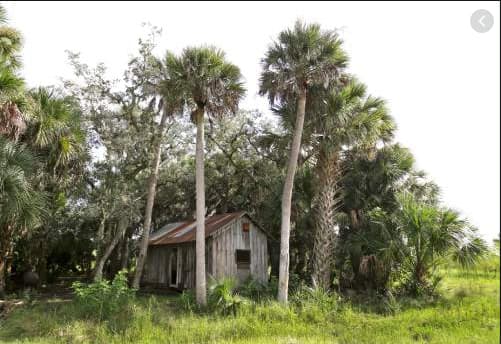
This is the largest cow-calf cattle ranch in the United States, and is the largest ranch of any kind in Florida. It is owned by an investment arm of the Church of Jesus Christ of Latter-day Saints. You can go on a tour of the ranch.
Return to Index at Top of Page

Florida is the fastest-growing state in the United States and also the fastest-changing. If you see anything in this article that has changed or is in error, please let me know.
Thousands of Florida fans subscribe to our free daily Ezine, Florida Heritage Travel and we have 130,000 followers on Facebook.
By Mike Miller, Copyright 2009-2025
Florida-Back-Roads-Travel.com
Florida Back Roads Travel is not affiliated with or endorsed by Backroads, a California-based tour operator which arranges and conducts travel programs throughout the world.
